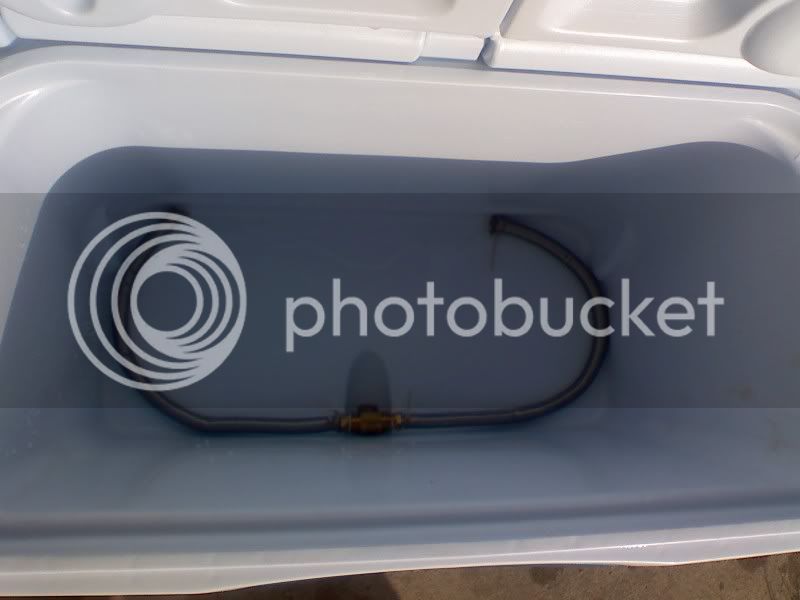Gave All grain another shot today, and yet again I sucked. This time I went with EdWort's Bavarian Hefe. Straight forward and simple:
7 lbs German Wheat
4 lbs German Pils
Mashed at 156-154 for 90 minutes with 4.3 gallons of water, and stirred every thirty minutes. First runnings were 1.063, about 3.8 gallons
Then I poured in 3.8 gallons @ 185, got the grainbed to 173 (over 170 can lead to astringency, right?) stirred, and ten minutes later collected 3.8 gallons of 1.020 wort. Great, 50 % efficiency again. I go ahead and boil to 5 gallons and make beer.
a few hours later, I decide to pour a couple gallons thru the MLT I need to clean, and take a reading. 1.017. I am leaving lots of sugar behind.
How do I go about sparging twice? Should I divide the total volume of the 1st runnings by 2 and sparge twice to end up with a thicker mash and the same volume into the boil pot? Should I Sparge twice with the same 1.3 qts per pound ratio and boil forever in a bigger pot? I have read before that you should stop collecting wort under 1.020- is that true?
I made great partial mash beer quick and easy- save me from going back!!!!
7 lbs German Wheat
4 lbs German Pils
Mashed at 156-154 for 90 minutes with 4.3 gallons of water, and stirred every thirty minutes. First runnings were 1.063, about 3.8 gallons
Then I poured in 3.8 gallons @ 185, got the grainbed to 173 (over 170 can lead to astringency, right?) stirred, and ten minutes later collected 3.8 gallons of 1.020 wort. Great, 50 % efficiency again. I go ahead and boil to 5 gallons and make beer.
a few hours later, I decide to pour a couple gallons thru the MLT I need to clean, and take a reading. 1.017. I am leaving lots of sugar behind.
How do I go about sparging twice? Should I divide the total volume of the 1st runnings by 2 and sparge twice to end up with a thicker mash and the same volume into the boil pot? Should I Sparge twice with the same 1.3 qts per pound ratio and boil forever in a bigger pot? I have read before that you should stop collecting wort under 1.020- is that true?
I made great partial mash beer quick and easy- save me from going back!!!!











![Craft A Brew - Safale BE-256 Yeast - Fermentis - Belgian Ale Dry Yeast - For Belgian & Strong Ales - Ingredients for Home Brewing - Beer Making Supplies - [3 Pack]](https://m.media-amazon.com/images/I/51bcKEwQmWL._SL500_.jpg)















































